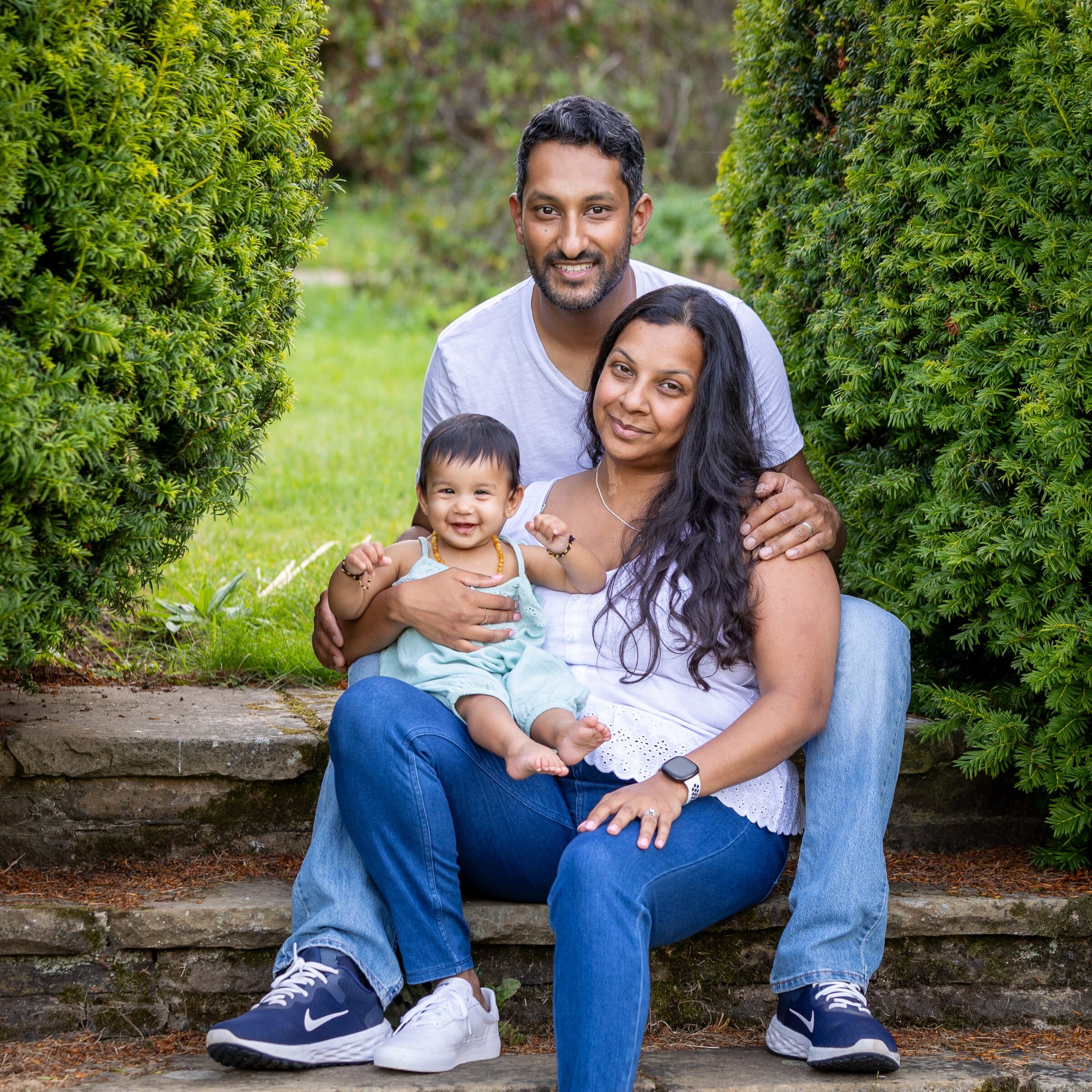
"No-one can prepare you for what we went through": Amara's Story
May 16, 2025
At just four days old, baby Amara stopped breathing. As a new parent, Amara’s mum Ushma felt completely lost, while medics worked on her tiny daughter, to try to save her life. Once stabilised, Amara was rushed to the family’s local hospital and later transferred to Evelina London Children’s Hospital. Her desperately worried parents were accommodated at the nearby Ronald McDonald House, meaning they could be just a short walk away from their sick child, at any time of the day or night.
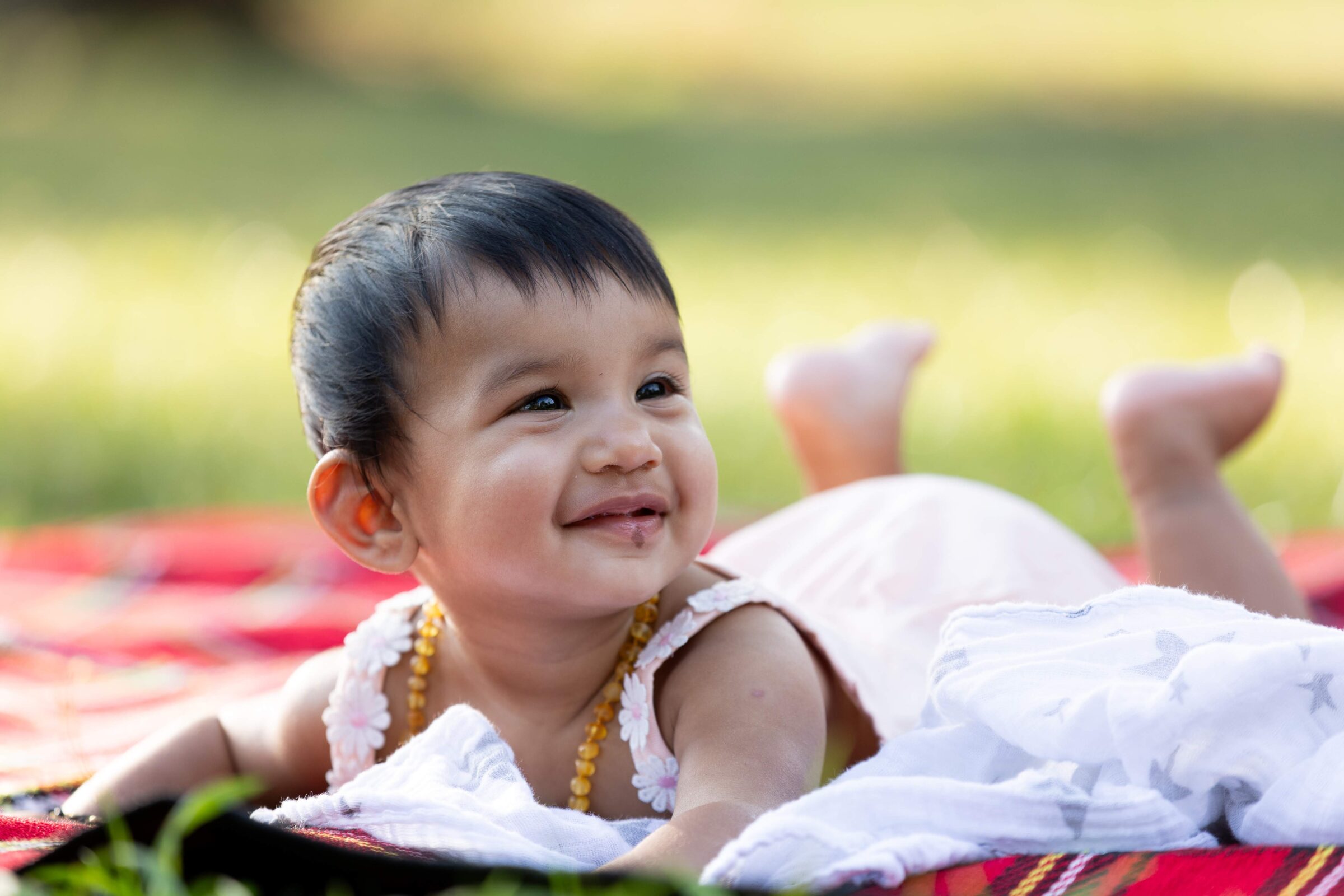
Guest blogger: mum, Ushma
At 26 weeks pregnant, I was diagnosed with obstetric cholestasis (OC), a liver condition that develops during pregnancy, which is more common in women of south Asian origin. This condition meant that I had to be induced at 36 weeks. On 1 January 2023, my husband Harshil and I headed to Queen Charlotte’s and Chelsea Hospital in London to start this process. Our bags packed and car seat installed, we were so excited for the arrival of our beautiful little baby.
After a long and difficult labour, Amara finally arrived on 3 January by emergency C-section, weighing 5lb 2oz. As soon as she was delivered, we heard the reassuring sound of her newborn cry, and the relief was overwhelming. We’d had to be closely monitored throughout my pregnancy, so knowing she was fine was all we’d hoped for.
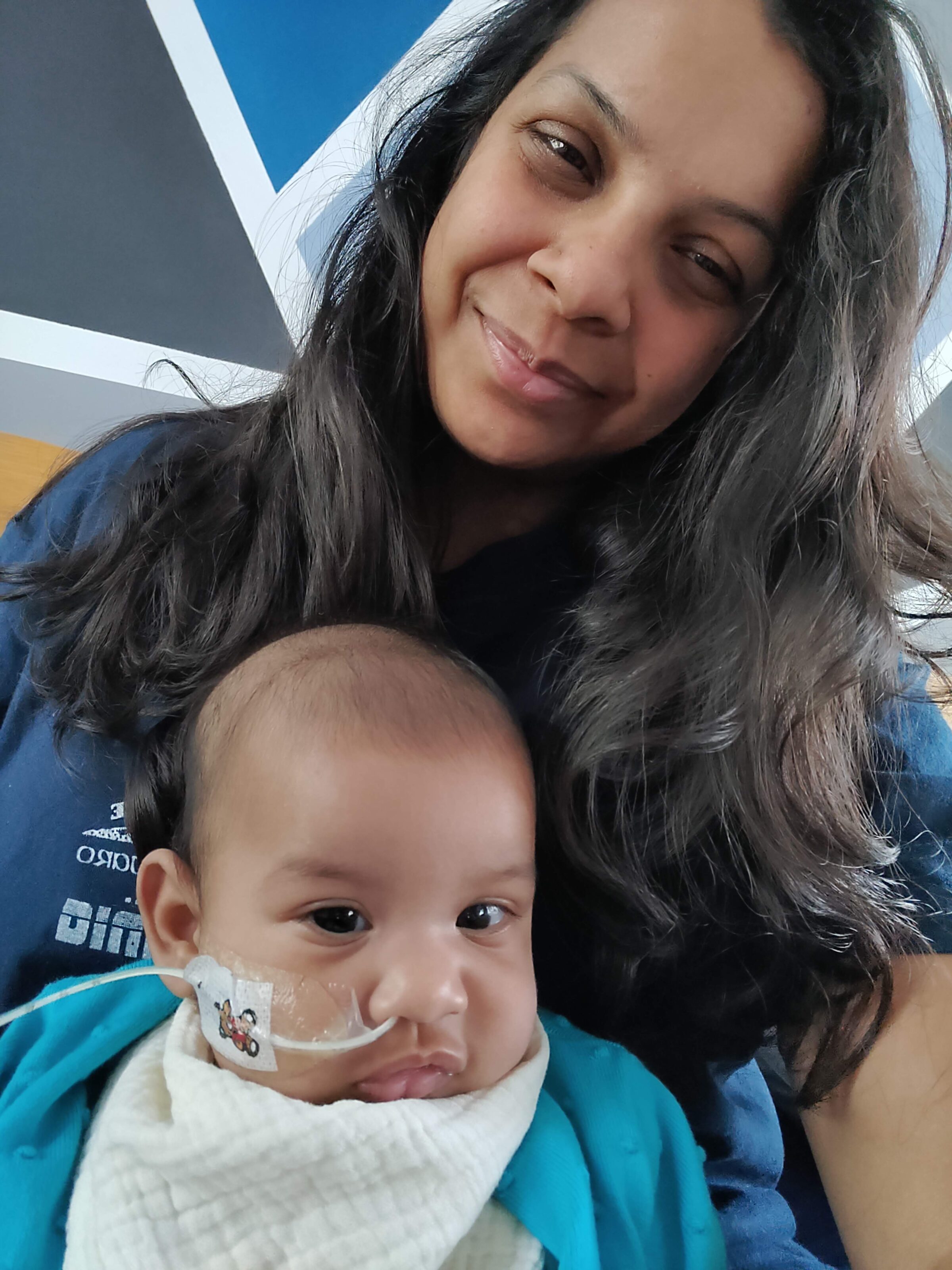
We were discharged on the afternoon of 7 January and went to stay at my mum and dad’s house for a few days, as we adapted to life as new parents. Everything was fine when we all went to bed that night, expecting Amara to wake up for her feed at around 4am. Just before 4am, we all woke up and while Harshil prepared a bottle, I thought I’d try breastfeeding. We’d struggled with breastfeeding for the first few days, and the midwives had encouraged me to offer a bottle, to help ensure Amara would gain weight.
While I was feeding her, however, we noticed she had stopped moving. Before I had Amara, I worked as a nursery manager, so I had a good knowledge of paediatric first aid and during my pregnancy, I’d organised the same training for my husband and other expectant parents in our NCT class. This meant I was confidently able to carry out some basic checks to see if she was OK. At that point, I realised there was something seriously wrong, as I couldn’t detect Amara’s breathing. I shouted my mum to get the front door open and we called 999. We put Amara on the floor and Harshil began CPR to try to resuscitate her.
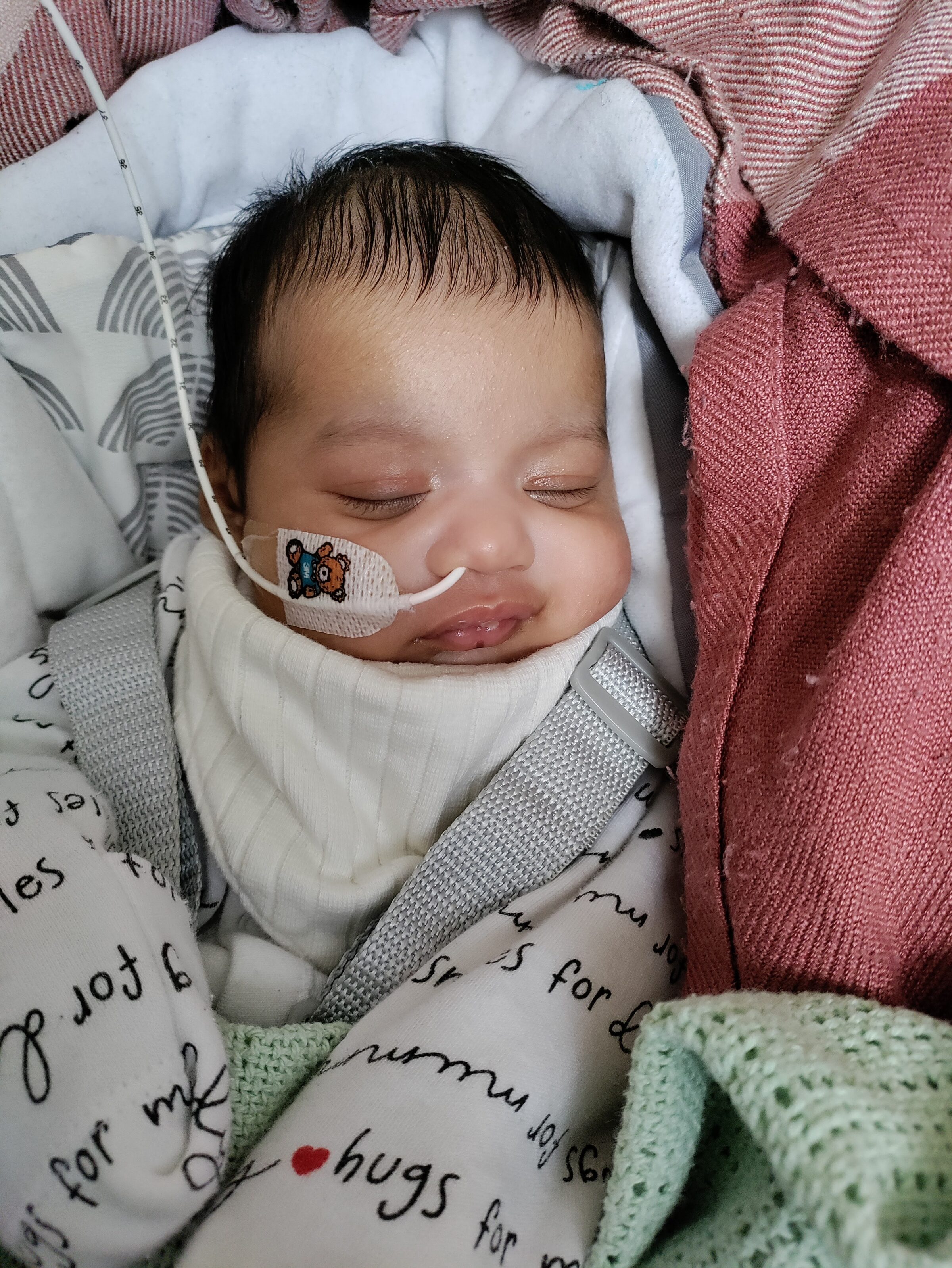
The paramedics arrived quickly and took over from Harshil, thankfully managing to find her heartbeat straight away. I was in a state of shock but managed to keep calm, almost detaching myself from the horror of the situation and dealing with the practicalities, such as locating Amara’s Personal Child Health Record (PCHR), or ‘red book’, and preparing to leave for the hospital.
We were taken by ambulance to Northwick Park Hospital. Amara was intubated and put on antibiotics, administered via a canula. She appeared so helpless, almost comatose, as doctors and nurses worked tirelessly around her to keep her in a stable condition.
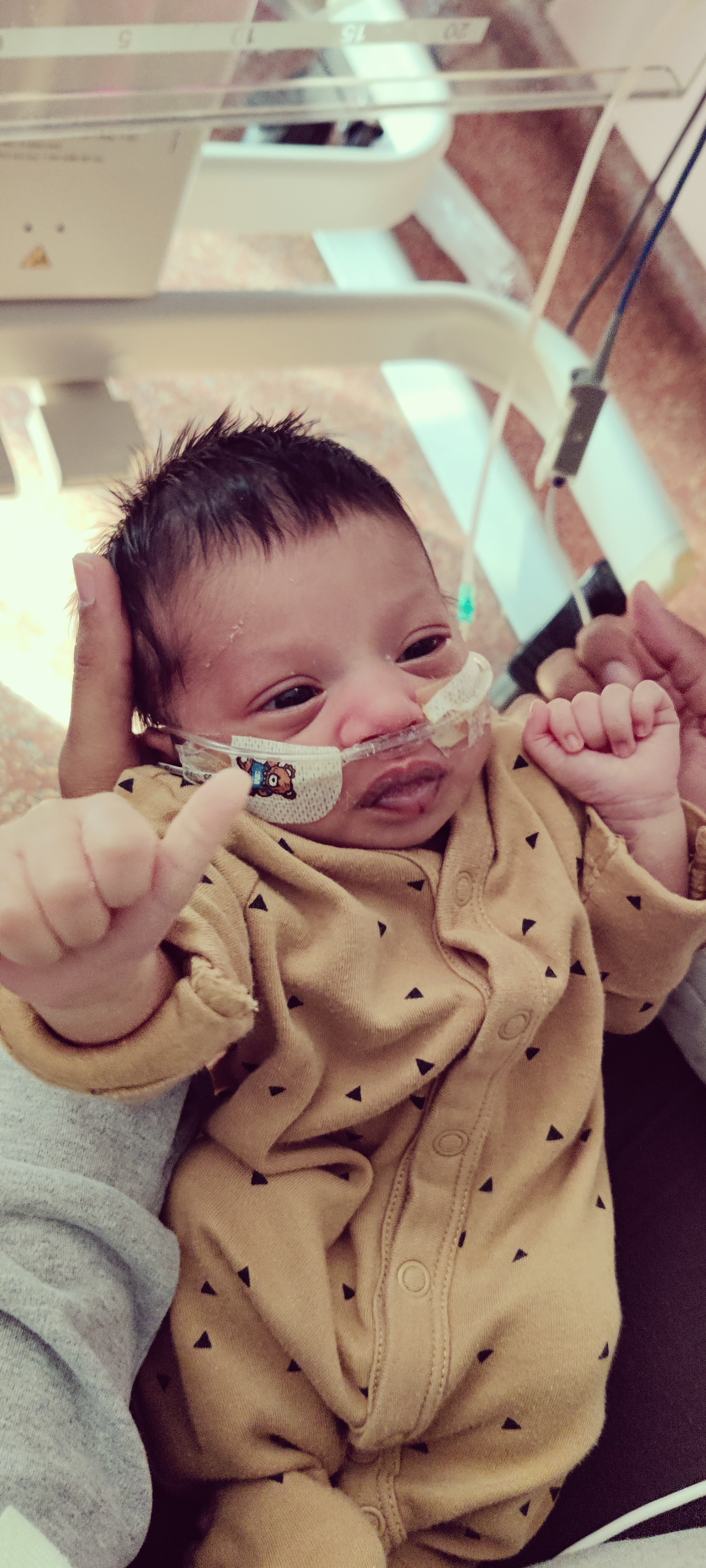
One of the doctors came to tell us that the blood tests had revealed a problem with Amara’s kidneys, so they needed to transfer her to Evelina London Children’s Hospital, one of the few paediatric centres that could offer dialysis to such a tiny baby. The Children’s Acute Transport Service (CATS) arrived to blue-light us across London, from Harrow to Lambeth; a 13-mile journey that took around an hour.
We were greeted at Evelina London Children’s Hospital paediatric intensive care unit (PICU) by one the nurses, Jenny, who would look after Amara for the next couple of days. Jenny called the maternity ward at St Thomas’ Hospital and Harshil wheelchaired me over, to get checked out, as I was still recovering from my C-section. When I got there and began telling a midwife what had happened, I broke down. They gave me some more pain relief medication and reassured me that my scar was healing well, and they had no concerns.
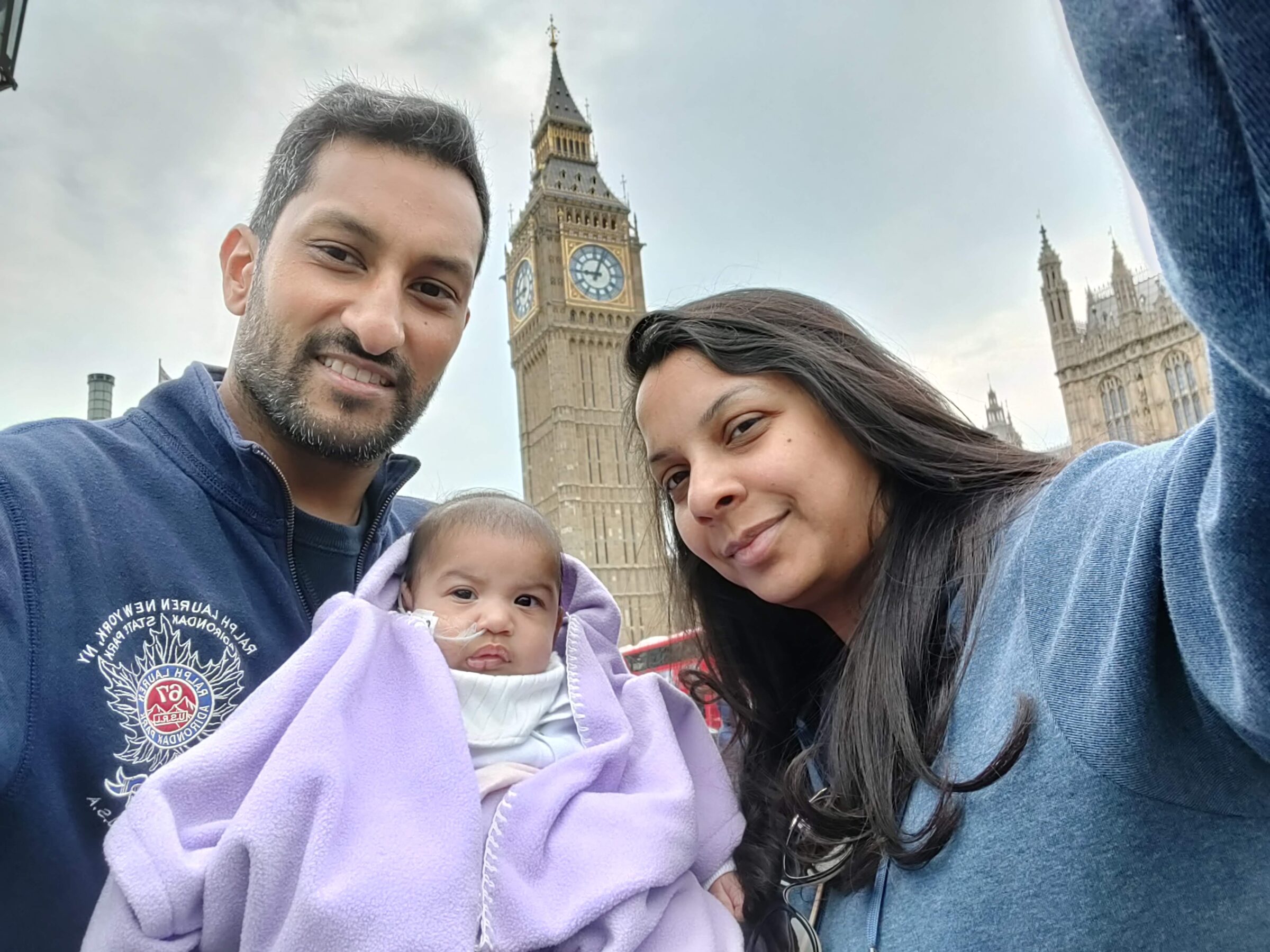
Meanwhile, doctors on the PICU had established that Amara’s medical issues were, in fact, related to her lungs and not her kidneys. Her lungs had collapsed but they were trying to ascertain the cause with further tests and x-rays. At that point, Jenny introduced us to the PICU diary. The diary was a shared journal kept at Amara’s bedside, which could be written in by us, other visitors, and healthcare providers to document her admission and experience on the unit. We were hesitant about it at first, since we had no idea if she was going to make it, but Jenny was encouraging and said there was no pressure to keep it if we didn’t want to.
We eventually found out that Amara had milk on her lungs, known as aspiration, which can occur during feeding and is a serious issue that can lead to complications including respiratory distress. Thankfully, after a few days, Amara’s condition began to improve, and she was extubated and moved onto Mountain Ward. That’s when I was able to hold her for the first time since she was admitted, which was just amazing.
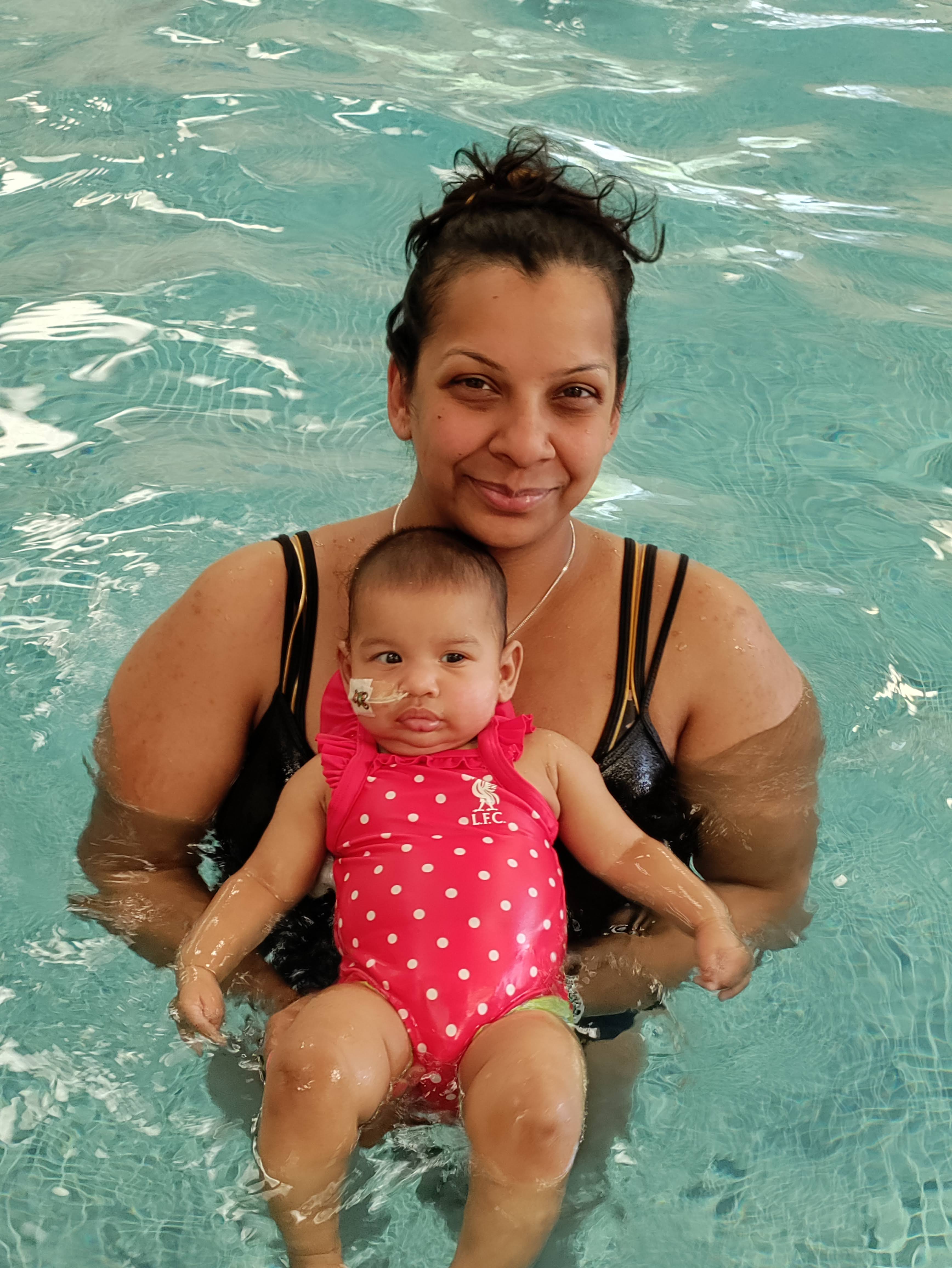
When we first arrived at Evelina London Children’s Hospital, we were given temporary accommodation in a PICU parent room. Two days later, we were told that the Ronald McDonald House had a room for us. The House would’ve been a short and pleasant 10-minute walk across Archbishop’s Park for most, but since I was still recovering from surgery, it took me around 20 minutes to cautiously make my way over there, as we weren’t allowed to remove the wheelchair from the hospital. Luckily, when we arrived at the House, the lovely staff provided me with one of their wheelchairs, which I was able to use to travel to and from the ward.
The House was really lovely. The staff were so kind and welcoming, and the facilities were brilliant. To have a clean and comfortable bedroom and our own space in which to unwind was such a blessing. The communal kitchen was fantastic for us too; when we got tired of hospital food and ready meals, we were able to do a supermarket shop and cook our own nutritious meals, which saved us a lot of money too. In the kitchen one evening I met another lovely mum, who’d had her baby at 25 weeks’ gestation and who’d been staying at the House for two months. It was so nice speaking to other parents and hearing their stories. We’d often find ourselves talking to them about our days and how we were managing the difficult situations we were in.
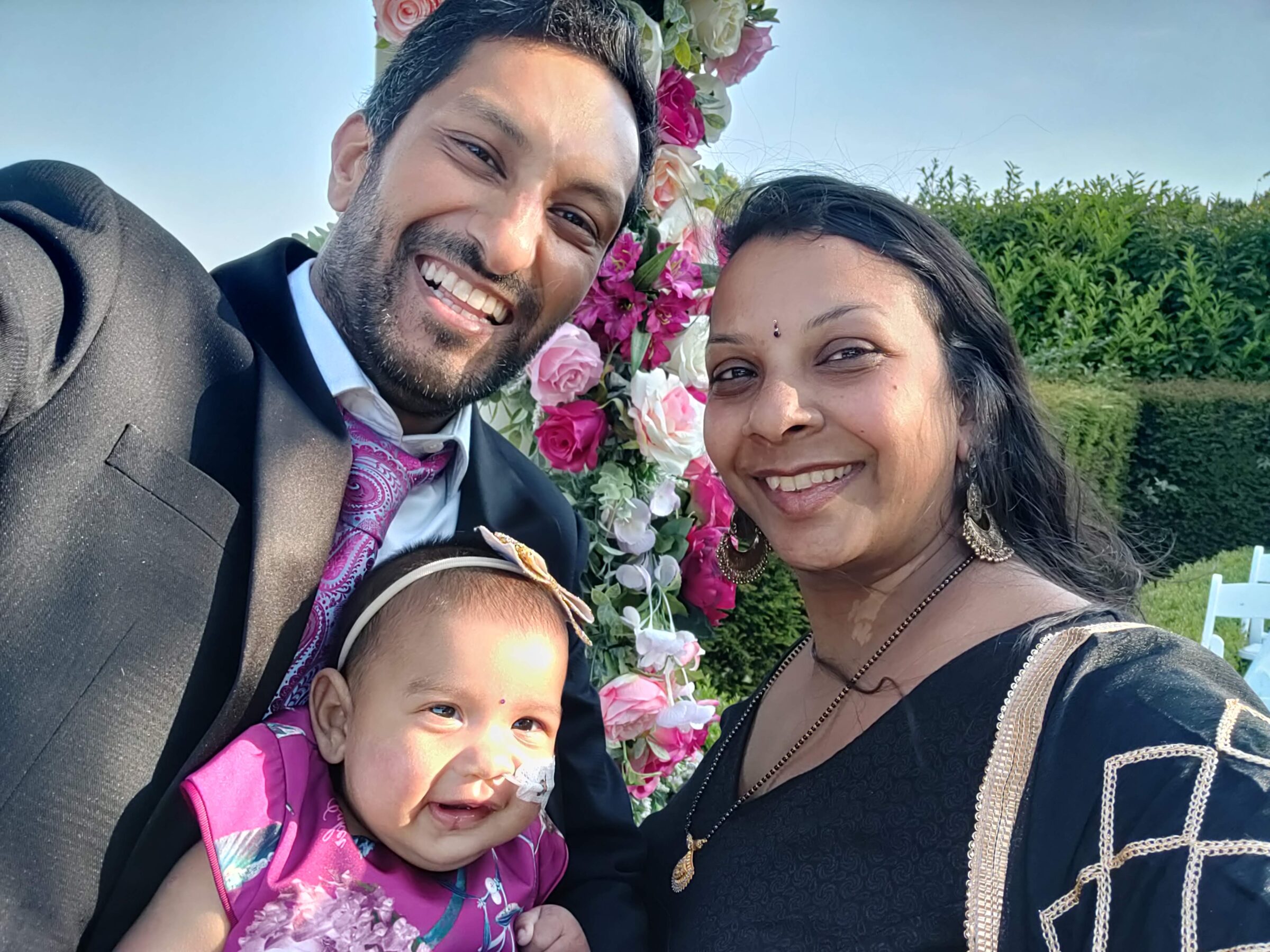
Amara stayed in Evelina London Children’s Hospital for a month, before she was transferred back to Northwick Park Hospital for a further five weeks.
Before Amara was born, I felt ready and prepared to enter motherhood, especially with my background of working with young children and babies. However, nothing could have prepared us for what we went through. Amara was diagnosed with a neurological condition and bulbar palsy, a condition caused by damage to the lower motor neurons, primarily affecting speech, swallowing, and facial movements.
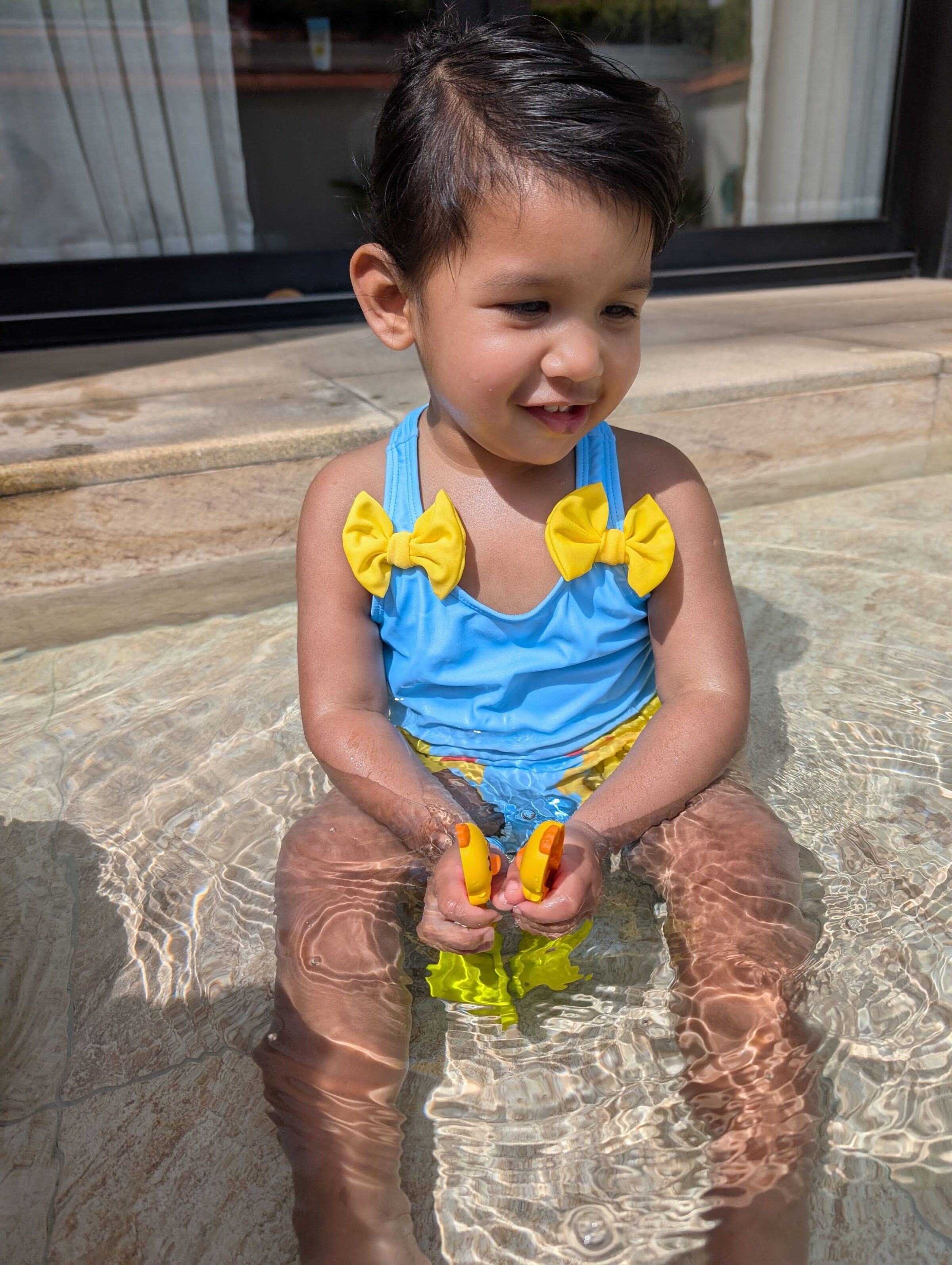
Having been on such a ride from the early days of being a mum, I decided to continue the PICU diary we started at Evelina London Children’s Hospital, so I could document every step of Amara’s medical journey. When we got home, I asked family and friends who visited to contribute some words, or a quote, which they graciously did. My sister-in-law then suggested I should make the diary into a book. I liked this idea but wanted to widen it into something that didn’t just document Amara’s journey but would include helpful advice to other parents going through similar challenges. From this, ‘Dear Amara – How You Survived’ was born! The book aims to empower other families and reassure them, as they navigate the trauma of having a sick child in hospital. I also hope it will encourage others to open up about their feelings and talk about what they’re going through.
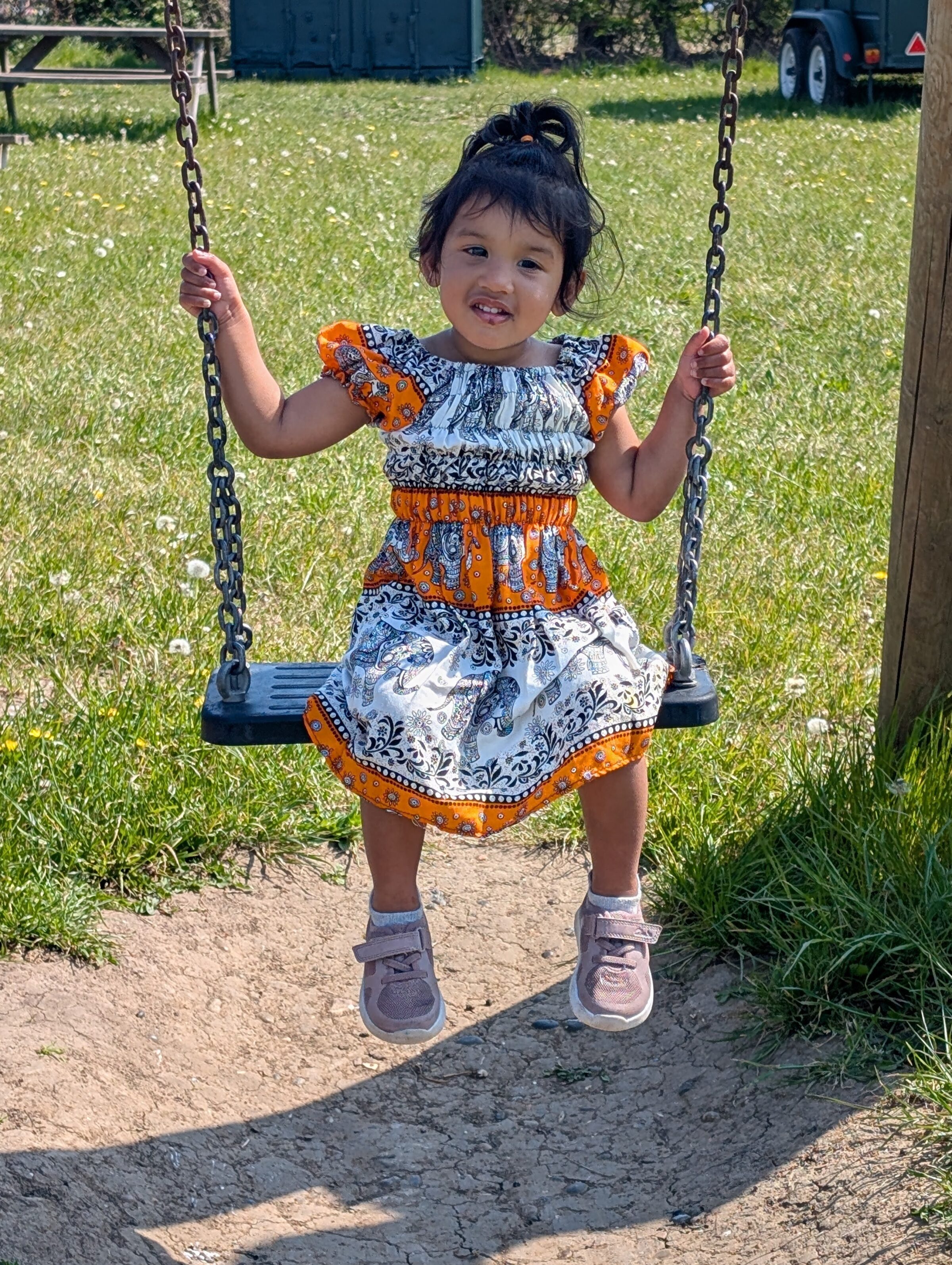
In the Acknowledgments section of the book, I thanked Ronald McDonald House Charities UK for allowing us to be close to Amara, and for saving us the added stress and burden of having to travel across London every day. We have also been keen to tell our loved ones about the Charity and spread the word about where their donations via McDonald’s restaurants go.
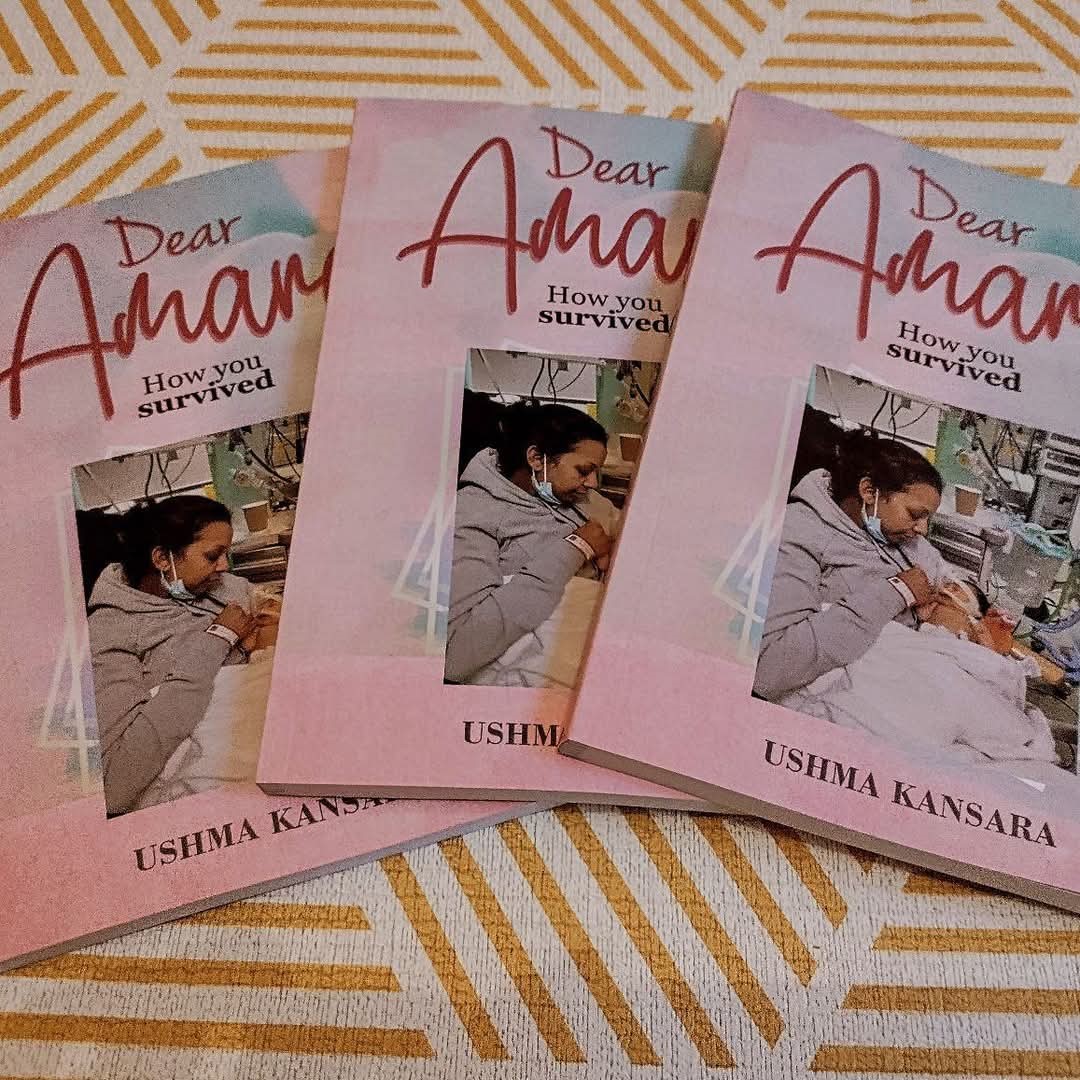
Amara is now two years old and thriving. She stopped tube feeding at eight months old, which was a huge milestone. She loves dinosaurs, her Baloo the Bear and Frozen. After overcoming such adversity at the start of life, she is just incredible, and we will be forever grateful for everyone who helped her along the way.

Help us provide free home away from home accommodation to support families with children in hospital with a donation.
